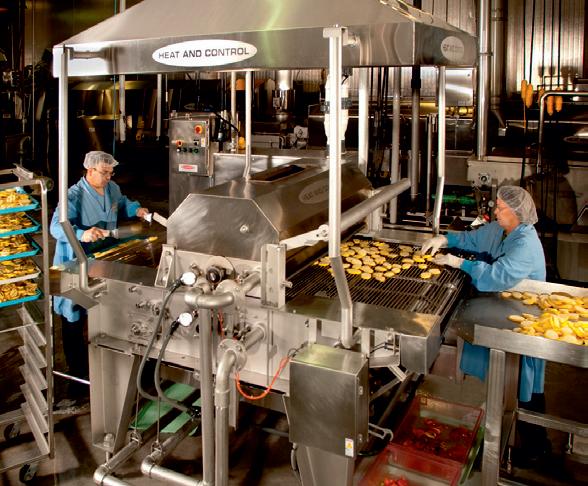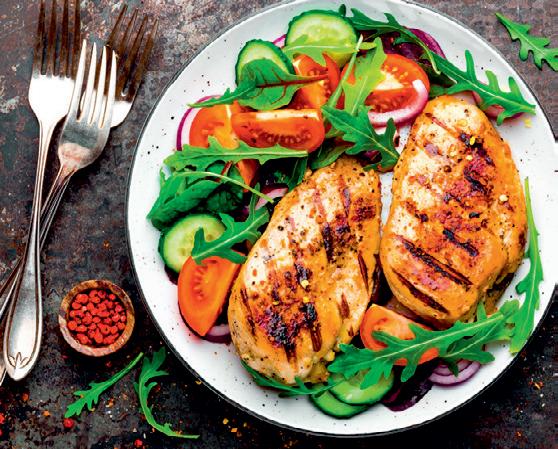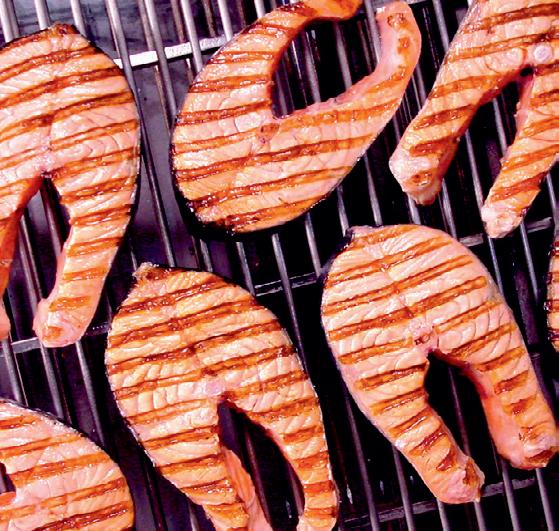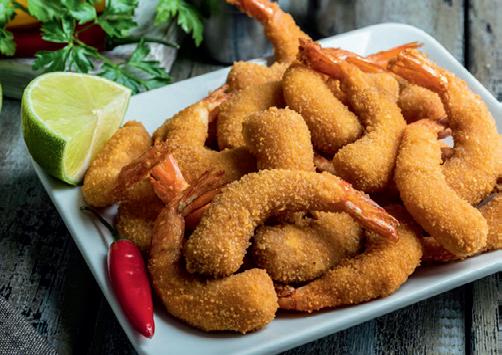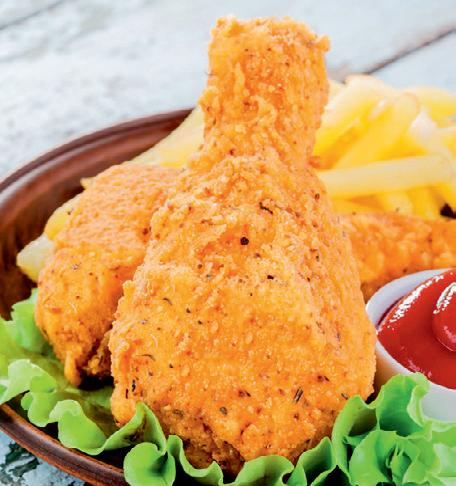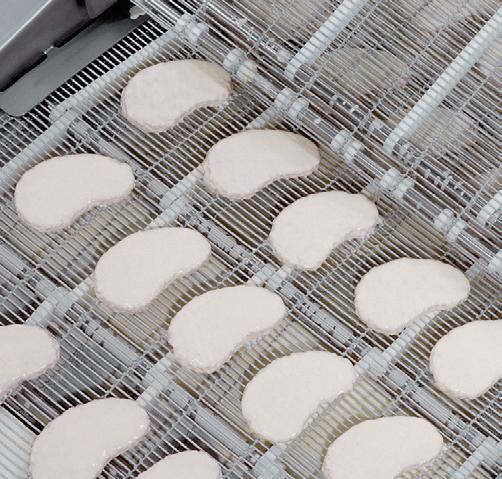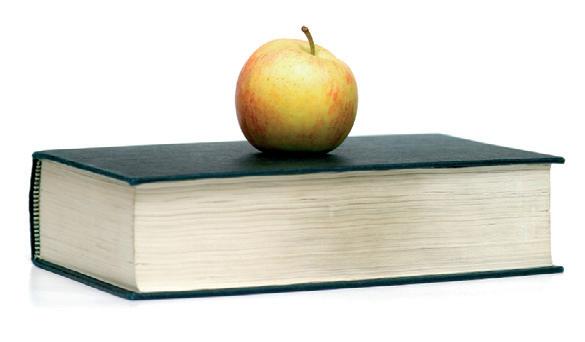
4 minute read
Fo d FOR thought
Dr
Anti-COVID cleaning surface spray with commercial potential
A rundown of the Future Proteins conference
Over 240 visitors from around the world recently convened at MULTIVAC headquarters to participate in the Future Proteins conference. What united them was their interest in food products from alternative protein sources, such as camembert made from cashew milk, shrimp made from soya and cutlets made from chickpeas. These food products are often delicate and have to be processed and packaged very gently.
A full program, supported by the Industry Association of Alternative Protein Sources (BALPro) was offered to visitors by the organisers, MULTIVAC and Handtmann. The program included presentations by speakers from science, research and industry, followed by podium discussions on subjects such as product trends, opportunities for market positioning and ways of reducing the CO2 footprint of packaging over the entire life cycle.
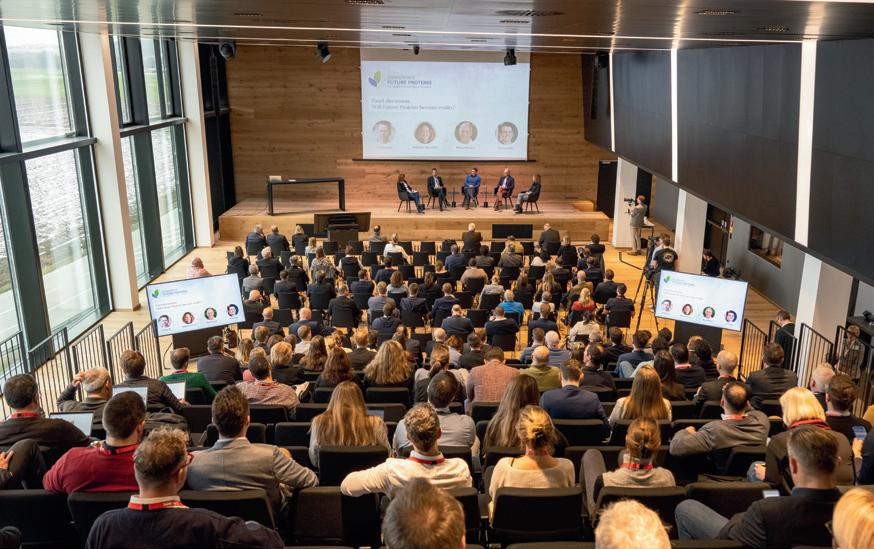
Harald Suchanka, CEO of Handtmann, said the visitors appreciated the opportunities for networking and the solutions presented at the event. The Meet the Experts format, where more than 60 experts were available for half an hour of individual discussion with the conference participants, was also popular.
The conference had a practical aspect in its deep dive sessions, which gave visitors the opportunity to observe machines and lines at work. The demonstrations ranged from semiautomatic individual machines right up to fully automatic industrial-scale line solutions from MULTIVAC and Handtmann, all of which featured the processing and packaging of sliced, minced and formed products, as well as other items such as convenience foods and spreads.
“We have now completed more than 100 projects in the alternative proteins sector,” said Klaus Deniffel, Project Manager for Alternative Proteins at MULTIVAC. “Each individual solution is configured independently, so that every manufacturer is supported during the challenges in their transformation of proteins.”
A team led by Dr Heather Shewan from the University of Queensland’s School of Chemical Engineering set out to create a spray for use on various surfaces to kill COVID-19 and bacteria such as E. coli and staphylococcus aureus.
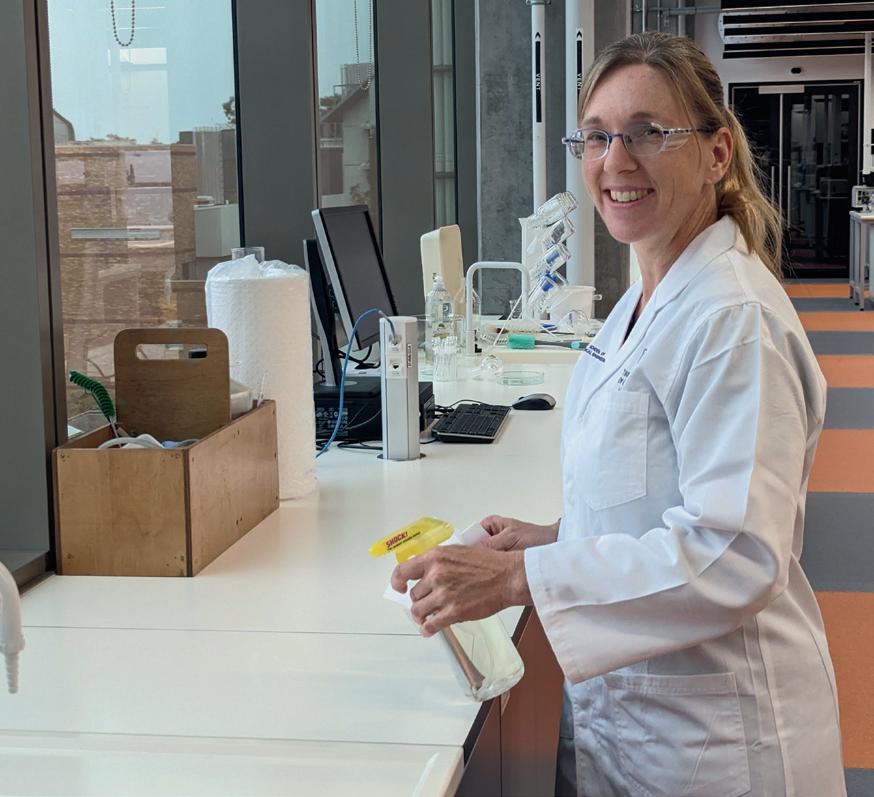
The spray contains a protein that allows it to stick to surfaces and remain effective for 24 hours and is being assessed by the Therapeutic Goods Administration for commercial cleaning use.
“We used hydrolysed gelatine which essentially helps create a thin film that allows the spray to stick on surfaces and can stay there for at least a day and potentially longer,” Shewan said.
“This durability means it is effective over a longer period than a standard cleaner and has the potential to be used in high-use areas such as in public transport, kitchens, hotels, retail outlets, hospitals and public areas.”
The research has been undertaken in partnership with Australian cleaning product manufacturer OzKleen, with the protein supplied by Beaudesert company GELITA Australia.
Shewan enlisted the help of virologist Dr Kirsty Short and microbiologist Dr Deirdre Mikkelsen to provide the multidisciplinary expertise required.
The team used several methods to test the spray, which is claimed to be cost-effective to manufacture and not harmful to the environment.
“In one test we sprayed glass surfaces with the cleaner and let it dry on the surface, and after 24 hours we added the COVID virus and further testing showed it did not survive,” Short said.
“We also conducted other tests that showed even after rinsing surfaces with water, the spray significantly reduced the amount of virus that was able to survive on stainless steel.”
OzKleen CEO Mark Quinn said the spray would be manufactured and produced in Queensland and potentially exported across the world.
Queensland Innovation Minister Stirling Hinchliffe said the research was made possible through an Advance Queensland Industry Fellowship grant of $90,000 and the product is gaining international attention.
Beer set to be brewed with Queensland sunshine
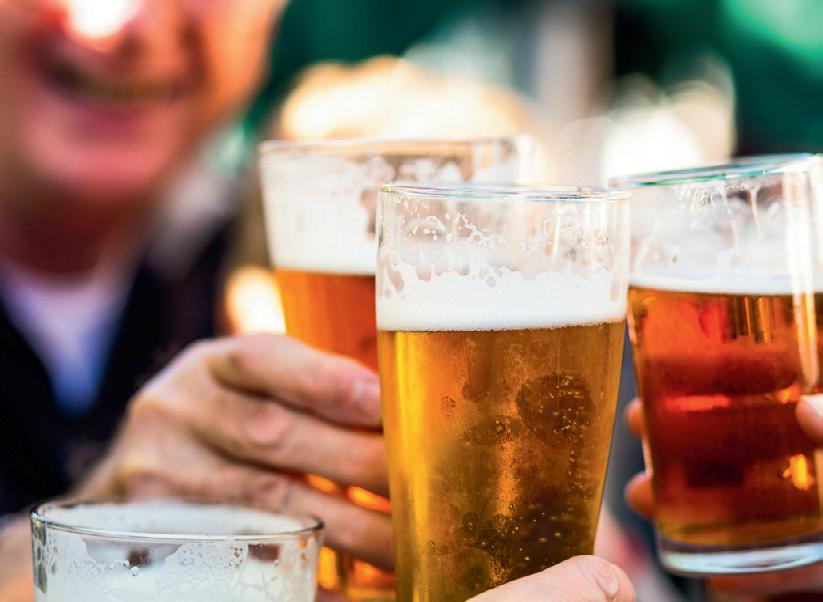
XXXX brewery is set to be powered by 100% renewable electricity following an agreement to use electricity from the Woolooga Solar Farm. Through its owner, Lion, the brewery signed a power purchase agreement (PPA) to procure electricity from the Lightsource bp solar farm in Woolooga.
Steven Miles, Deputy Premier, said the Queensland Energy and Jobs Plan encourages businesses to invest in decarbonisation, with an increasing number wanting to decarbonise operations and offer low-emission products.
“With the PPA in place, Lion has reached their target of 100% purchased renewable electricity by 2025 in Australia, two years ahead of schedule. And they’re Australia’s first large-scale, carbon-neutral brewer,” Miles said.
Lion Sustainability Director Justin Merrell said, “All of our beer produced here — up to 250 million litres annually — is now made using 100% renewable electricity. This agreement will stop around 138,000 tonnes of carbon emissions from entering the atmosphere. That’s the equivalent of taking 45,000 cars off the road.”
According to Merrell, Lion became Australia’s first certified large-scale carbon neutral brewer in 2020.
Wine initiative is sharing the drop across Japan and Korea
The Australian Government is partnering with the viticulture industry to promote Australian wine in key export markets — Japan and Korea.
The Wine Country Manager initiative is designed to help Australian wine exporters diversify their markets. The initiative will bring together exporters, importers, wine experts and buyers to increase sales of Australian wine in supermarkets, restaurants and homes across Korea and Japan.
Under the Wine Country Managers initiative, industry bodies Wine Australia and Australian Grape & Wine will partner with the Australian Trade and Investment Commission (Austrade) and Australian embassies to run education seminars and marketing activities in Japan and Korea.
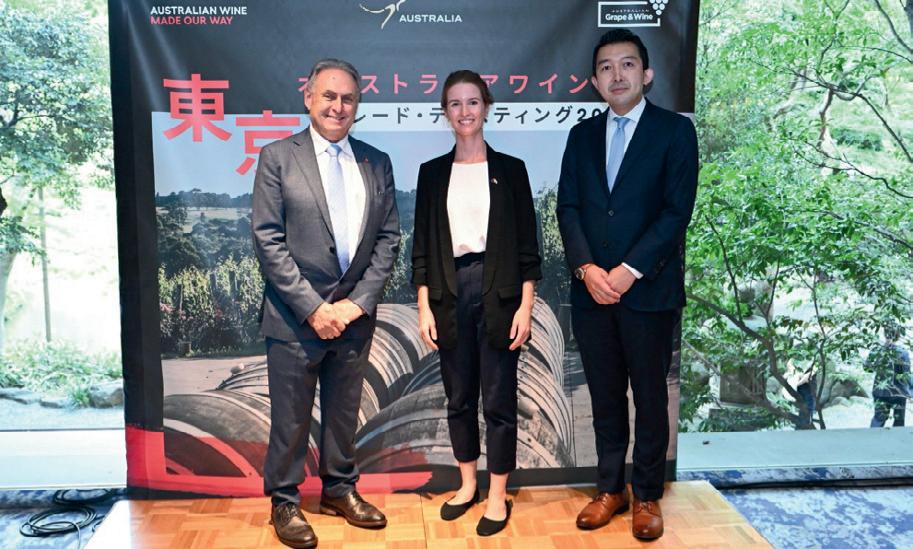
Australia’s Minister for Trade and Tourism Senator the Hon Don Farrell has announced Rosemary Macdonald and Suzie Chung as Wine Country Managers for Wine Australia for Japan and Korea, respectively.
Wine Australia Chief Executive Officer Dr Martin Cole welcomed MacDonald and Chung to the new roles that will be based with Wine Australia.
“Ms MacDonald and Ms Chung will be a vital conduit between Australian wineries and the local wine trade in Japan and South Korea,” Cole said.
Independent brewer launches non-alcoholic craft beer
CbCo Brewing has launched CBCo Zero, a 0.0% ABV beer. The first in the CBCo Zero range is Tropical Sour, available exclusively at CBCo Brewing’s Port Melbourne brewery from 14 February.

The range has been developed for occasions where 0.0% alcohol is a better fit, such as for those wanting to regulate alcohol consumption or avoid the effects of drinking.
Lawrence Dowd, CBCo Brewing Managing Director, said the launch is a significant milestone for the independent craft brewer.
“We have deliberately taken our time to perfect the process and master the technology to ensure there is no compromise to the quality or flavour of our beer during the dealcoholisation process,” Dowd said.
Ashley Hazell, the Head Brewer, has been leading the dealcoholisation process to ensure the taste and quality of the beer remains consistent.
“The process works by passing finished beer through a vacuum chamber full of lowtemperature steam, to evaporate the alcohol with minimal impact on beer flavour. It’s real beer, but with the alcohol removed,” Hazell said. “The team and I have been continually brewing small batch beers with dealcoholisation in mind, and look forward to releasing a range of 0.0% ABV beers on tap and in pack throughout 2023.”


